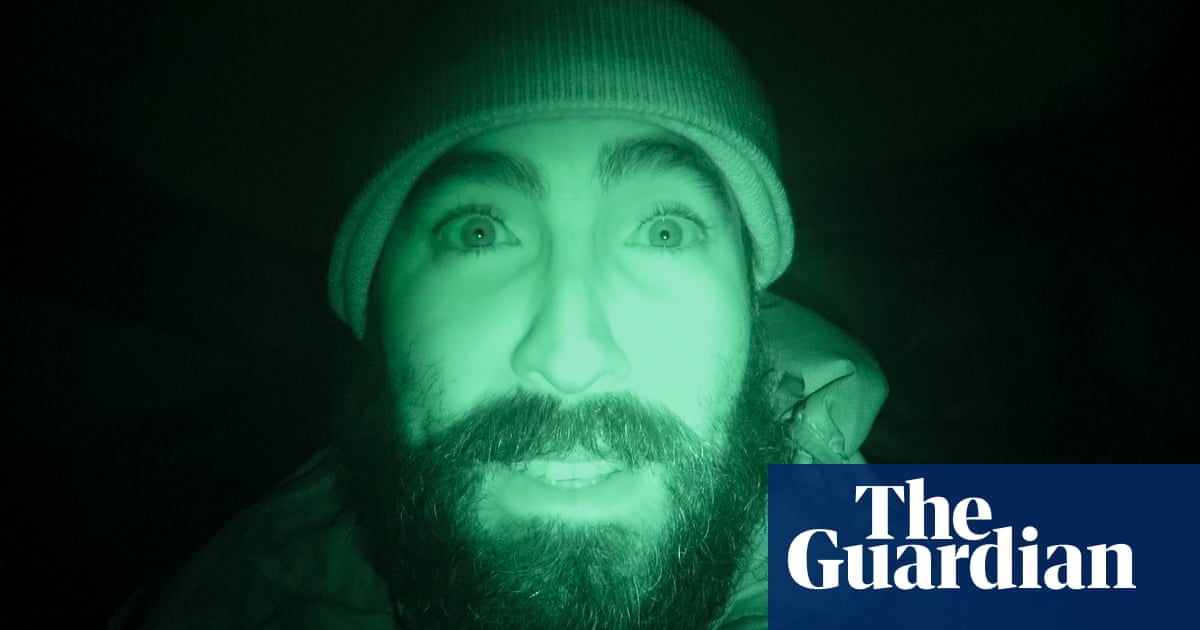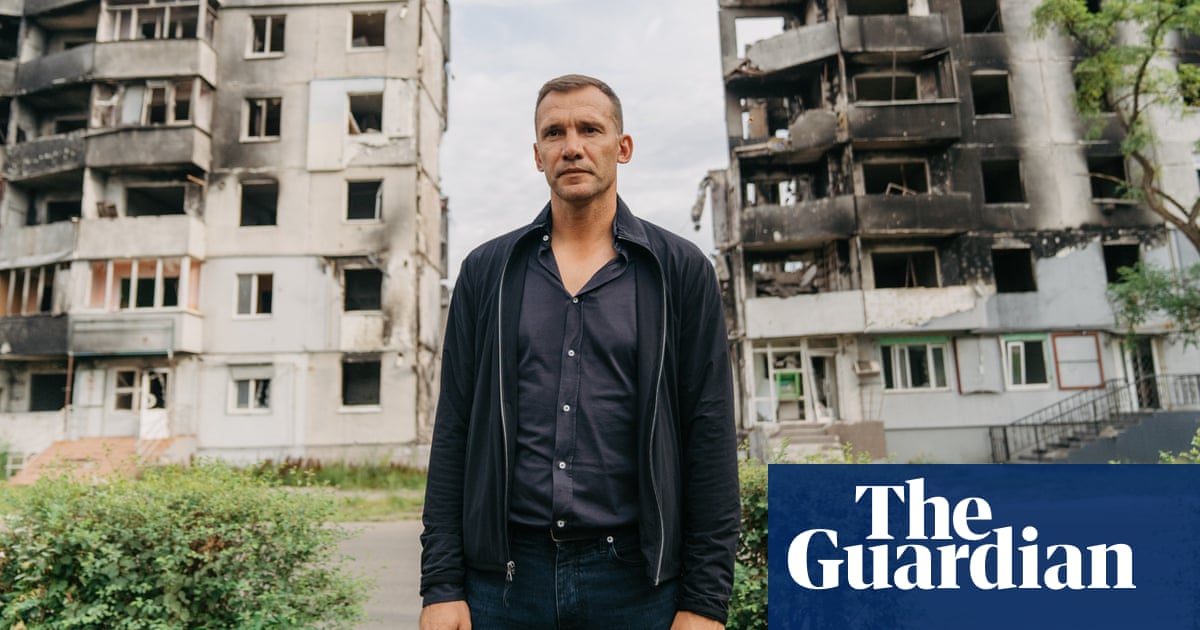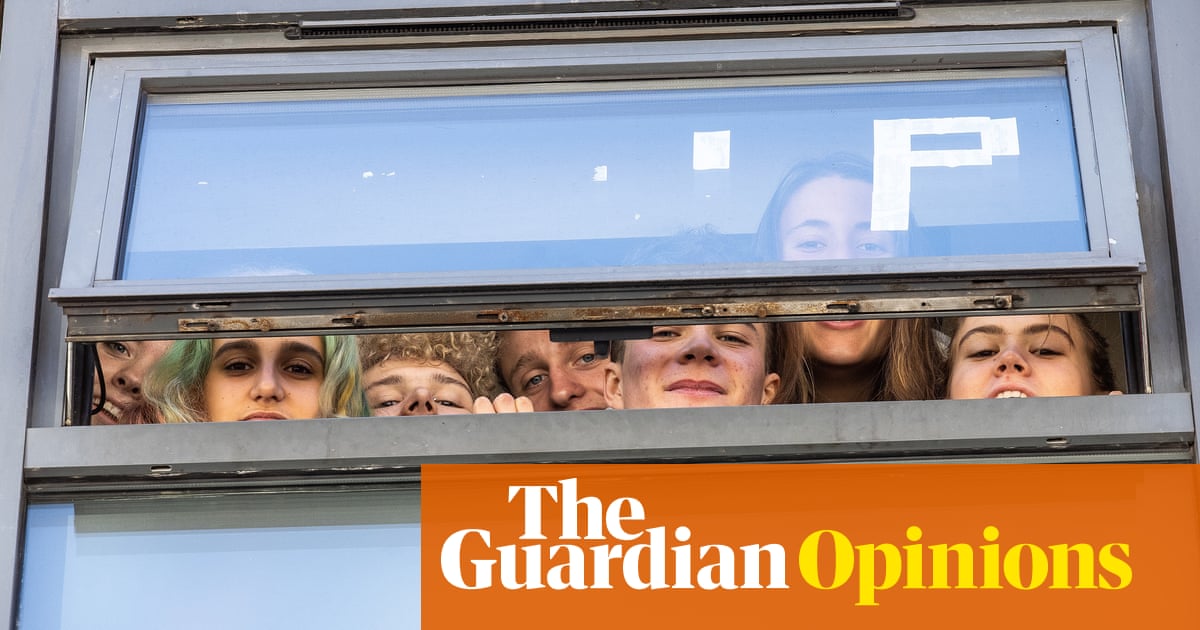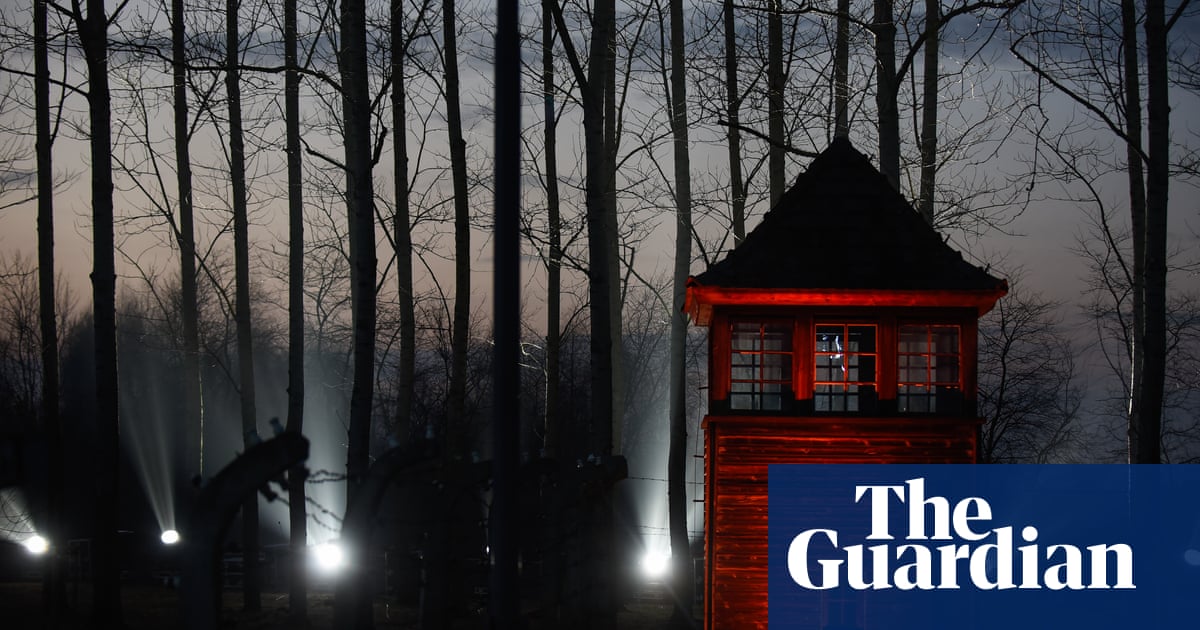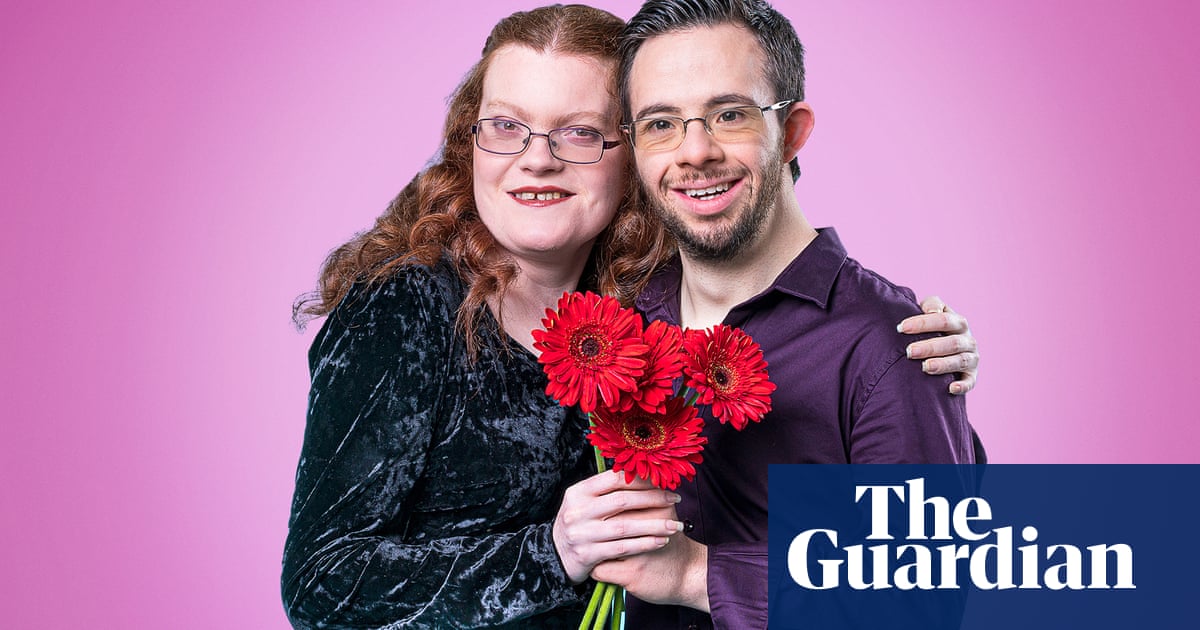
For their second date, Carlos invites Aelinor to a cooking class where they learn how to make an authentic Italian pasta dish, before eating it together. He brings her a beautiful bunch of flowers in her favourite colour, and recites self-penned poems about the ways her presence and beauty makes him feel. Speaking to the cameras afterwards, he says with a straight face: “As a matter of fact, I don’t like her,” before breaking out into a huge grin and adding: “I love her.”
Carlos and Aelinor’s blossoming relationship is one of several chronicled in Down for Love, a new Netflix series that follows people who have learning disabilities as they embark on a journey to find partners. The show, developed in New Zealand by disability-first production company Attitude Pictures, follows on from the success of similar shows Love on the Spectrum (also Netflix) and the poorly titled The Undateables (Channel 4). It’s not hard to understand why disability-specific dating shows are cropping up – after all, if having a conventionally attractive body forms the basis of romantic connections in mainstream dating series, where does that leave those of us whose figures deviate from what’s typically considered attractive?
While The Undateables generally received praise for how respectful it was around disability, its title, which feeds into the implication that disabled people aren’t worthy of romantic attraction, was widely criticised. “I find the word ‘undateables’ rude,” explains disability rights advocate Heidi Crowter, who has Down’s syndrome. “We’re not undateable, we are dateable – James [Heidi’s husband] is dating me right here.”
“The first time they asked me to go on The Undateables I said no, even though I loved the show,” says comedian and content creator Fats Timbo. “I didn’t want to be attached to being called that.” Eventually, the comic – who has dwarfism – agreed to participate. “Viewers love the people on these shows and build connections with them,” she said, “I just don’t like people feeling sorry for us. It makes me feel like we are inferior, which a lot of people think we are, but that’s their issue.”
Mainstream dating shows can be a hostile environment for disabled people. At the forefront of this troubled genre with its toxic, impossibly high beauty standards is Love Island, which recently wrapped up its 10th season. Guardian writer Daisy Jones described its latest outing as being packed with “tanned 23-year-olds in colourful, complicated swimwear asking each other if they usually go for blonds or brunettes”. The programme’s success – and, as Jones suggests, perhaps its imminent downfall – hinges on the conventional good looks of its contestants. “I don’t really like Love Island,” says Crowter. “I find it weird and a bit complicated. All they talk about is how they look; they don’t really talk about the person and the personality. There’s more to a person than how they look.”
Love Island has slowly become more inclusive in recent years, featuring a handful of disabled contestants – including Tasha who is deaf and Hugo who has clubfoot. However, it seems the show tends to recruit the most “palatable” disabled people they can find – people who are conventionally attractive and could pass in certain contexts as non-disabled. “That’s the premise,” says Timbo. “They bring on ‘beautiful’ people and if they’re going to bring disabled people on, they have to be ‘beautiful’ too.”
Regardless of their passability or palatability, the few disabled stars Love Island has enlisted have still been subject to vicious online ableism and trolling. “If you try to add inclusivity into what’s supposed to be a cookie-cutter show, people go up in arms,” explains wheelchair dancer and content creator Tobi Green-Adenowo, who also starred in The Undateables.
Timbo went through something similar when she appeared on Eating With My Ex, a dating show with majority non-disabled stars, which she says opened her up to a world of criticism she had never experienced at such magnitude before. “So many people were like ‘Why does he even like her?’ or ‘I can’t believe she’s dating someone, where am I going wrong?’,” she says. “They were trying to say I’m not worthy of love because I look the way I do.”
For many people who have learning disabilities, appearing on a show that pairs disabled participants up with non-disabled dates presents a multitude of barriers, as it does in the real world. As Libby, one of the stars on Down for Love, explains in the opening episode: “When you have an intellectual disability, it is so damn hard to find someone on the same level as you when it comes to communication and intelligence.”
Speaking later to the Guardian, Libby says: “I want people to see that we can have happy and fulfilling lives just the same as everyone else. Your disability doesn’t define who you can date.”
Make no mistake, Libby has a happy and fulfilling life. In the show, she attends the premiere of the film Poppy, in which she has the starring role. We also watch keen dancer Josh tearing up the dancefloor and comedian Lily performing one-woman standup. Suave romantic Carlos, meanwhile, casually slips in that he can speak four languages and is a competitive swimmer. These disabled people are far from pathetic, lonely and one-dimensional, Down for Love seems to insist – they just want to experience love, too. And why shouldn’t they have that opportunity? “It doesn’t matter the difference,” says Carlos, “we all deserve that special someone who we want to spend our lives with.”
One aspect of the participants’ documentarised journey that feels slightly jarring is the involvement of their parents, who are shown talking about their adult children’s disabilities, helping them get ready for dates, telling the camera their hopes, and debriefing with them afterwards. There are no scenes in the episodes I have watched where participants debrief with their friends – only with their non-disabled parents. Love on the Spectrum followed a similar format, and as one review pointed out: “There are more interviews with parents than with the people the show is ostensibly about.”
When we’re introduced to Leisel in Down for Love, her mum talks about how she was told to “expect the worst” in pregnancy and that her daughter might not survive. Why is that relevant to a dating show in which her now adult child stars? Later, Leisel and Brayden end their second date in Leisel’s garden jacuzzi. Wonderful – except both their mums are in the kitchen, metres away.
“This focus on the wrong perspective comes through when you see parents interviewed – it’s not about them,” says Ciara Lawrence, who is engagement lead at Mencap and has a learning disability. “If it were me, I wouldn’t want my mum coming round and telling me what to wear! I know everybody’s different, and people have different needs and relationships, but it shouldn’t be about the parents. It should be about the people with a learning disability.”
At times, the parental involvement in these shows feels a little too close to an aged trope about the infantilisation of disabled adults, particularly those who have learning disabilities. It’s unhelpful and stigmatising. “[It] reinforces the idea we can’t date,” explains Heidi. “We can, we’re still people, we’re still humans. Some disabled people might need a bit more support, for example learning about love and relationships and intimacy. But we can still do all those things.”
In addition to non-disabled parents needing to take more of a backseat role, these shows struggle to rid themselves of an uncomfortably voyeuristic lens, as though the role of disabled stars is to entertain non-disabled viewers or make them feel good. As Green-Adenowo says: “When people said they loved [The Undateables], I always question what it is that makes them love it. Is it because it makes you feel better?”
Meanwhile, programmes such as Love Island, which shoehorn disabled contestants into a format that is exclusionary by nature, seem to care more about representation than true equity. So how then do we include disability in an authentic and empowering way, while shattering rather than reinforcing stereotypes and protecting those involved from the online mobs? Perhaps we need to start again.
“I don’t advocate for separation but I also don’t think it works mixing [disabled and non-disabled people in already established shows] – it’s going to do the opposite of what we want,” says Green-Adenowo. She feels it’s better to include everyone from the start. “One day I hope to see another show that is led by us and run by us so you can see things through our eyes. If you organically start a show that’s intersectional like that then you are going to find your correct audience.”




